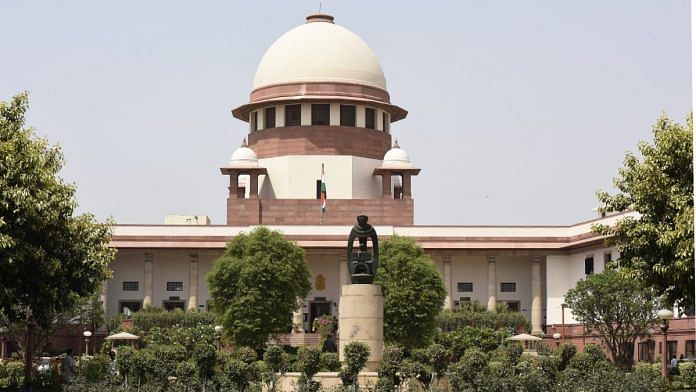The Supreme Court recently approved the witness protection scheme drawn by the home ministry and ordered its immediate implementation.
New Delhi: As many as 92 of 210 witnesses in the alleged fake encounter of Sohrabuddin Sheikh 13 years ago turned hostile.
Three witnesses in the three rape cases against self-styled godman Asaram are believed to have been killed in the run-up to the trial, which led to a conviction in one of them any way.
Zaheera Sheikh, a witness in the arson attack on the Best Bakery in Vadodara that led to the death of 14 people during the post-Godhra riots, was one of 37 out of 73 witnesses who turned hostile. The accused were acquitted after the prosecution’s case fell apart, and Sheikh claimed later that she had been threatened by a BJP MLA to change her testimony. Nothing came of the admission even though she was charged with perjury.
Witnesses to crimes involving the powerful often offer testimony at the risk of injury and death.
If the threats force them to withdraw, crucial cases are left hanging for years, leaving the perpetrators as good as free.
It is in this light that the Supreme Court recently approved the union home ministry’s witness protection scheme and ordered states to carry out immediate implementation.
Parliament is expected to eventually fashion a bill out of the scheme.
Duty of the state
Witness protection programmes are described by the United Nations as a duty of the state. Fans of American crime shows would be familiar with such schemes, which are meant to offer security to witnesses and, in extreme cases, give them a different identity altogether, a provision also included in the home ministry’s draft.
The Witness Protection Scheme 2018 primarily hinges on identifying categories of threat perceptions and preparing a “Threat Analysis Report” for each case, based on which different degrees of protection measures will be activated.
The measures include ensuring that the witness and accused do not come face to face during the investigation, protection of identity, relocation of witnesses, confidentiality and preservation of records, and recovery of expenses etc.
The scope of the scheme may be as simple as providing a police escort to the witness up to the courtroom, or using modern communication technology (such as audio and video means) to record testimony.
In other more complex cases, involving organised criminal groups, for example, extraordinary measures may be carried out, such as change of identity and temporary residence in a safe house. The scheme is likely to take a year to be rolled out in earnest.
The Supreme Court directed the implementation of the scheme while hearing a petition for protection filed by witnesses in the Asaram Bapu case.
Delivering their judgment, a bench comprising Justices A. K. Sikri and S. Abdul Nazeer noted that the “witnesses have been frightened with serious consequences in case they depose against Asaram”.
“It is alleged that as many as 10 witnesses have already been attacked and three witnesses have been killed,” it added.
The top court referred to witnesses as the “backbone in decision-making process”, saying their status in the legal system was “pathetic”.
The petitioners include a witness, the father of a murdered witness, the father of a child rape victim, and a journalist who escaped a murder attempt by goons allegedly sent by Asaram and his son Narayan Sai.
Speaking to ThePrint, advocate Anand Mishra, representing one of the witnesses, said the scheme would “hopefully help all those vulnerable witnesses out there”.
Also read: Supreme Court accepts Centre’s draft witness protection scheme
‘Welcome, but late’
“This is a hugely welcome step, to have a witness protection scheme in place,” said human rights advocate Colin Gonsalves.
“Had it come earlier, it would have had a huge impact on all kinds of litigation,” he added, “This includes the cases in the Gujarat and Bombay riots as well. In that sense, this has come very, very late.”
“As far as the Sohrabbuddin case is concerned, the scheme would have protected all those witnesses that came under fire,” Gonsalves said.
A special CBI court is likely to deliver its verdict in the Sohrabuddin case on 21 December.
“However, I am concerned that no police agency will implement it properly,” Gonsalves said.
“Everyone will resist. But it will be important to take subsequent cases to court in order to successfully implement the scheme. Hence, we should not be overconfident that just because the court has ordered its implementation, it will happen,” he added.



